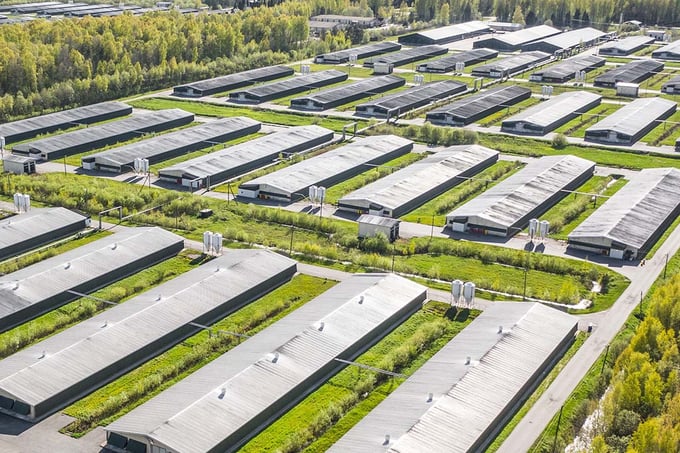May 29, 2025 | 16:17 GMT +7
May 29, 2025 | 16:17 GMT +7
Hotline: 0913.378.918
May 29, 2025 | 16:17 GMT +7
Hotline: 0913.378.918
The approach will be similar to the one existing in the pig industry, where it has proved its value in combating African Swine Fever.

Russian authorities have published a draft decree under which the compartmentalisation system will be put in place on 1 March 2025. Photo: Canva
Russian authorities have published a draft decree under which the compartmentalisation system will be put in place on 1 March 2025, to be valid at least through 1 March 2031. Similar to the pig industry, the plan envisages dividing all poultry farms into 4 categories, or compartments, depending on their level of biological protection. Compartments 1 and 2 are assigned to farms with a low or poor level of biological protection, while compartment 3 is to farms with a standard protection level.
Almost all Russian industrial pig farms have compartment 4, indicating they comply with the strictest veterinary rules. Its main advantage is that it allows pig farms located in a territory affected by ASF to continue selling products outside the region, even overseas.
It is expected that the poultry farms with the highest compartment will be eligible to continue poultry exports even appearing in the quarantine zone, providing that bird flu is not registered at the facility. In the decree’s explanatory note, the Russian Agricultural Ministry claimed that the compartment system would secure trade advantages for the Russian poultry industry.
The Ministry said, “[These will involve] simplified export procedures, improving the epizootiological situation at poultry farming facilities, and ensuring the veterinary safety of poultry products.”
The draft regulation indicates how the owner can apply for inspection of poultry production facilities to determine their animal health status. The authorities revealed that the Russian veterinary agencies would carry out the inspection free of charge.
Russian poultry farms asked the Russian veterinary watchdog Rosselhoznadzor to introduce the compartmentalisation system, Sergey Dankvert, head of Rosselhoznadzor, disclosed in April 2023. He also criticised the way the veterinary system is organised at Western poultry farms.
“Those losses [due to bird flu] they suffer in Europe, America, even Japan are predictable because they opted for not strengthening biological protection, or, as we name it, compartmentalisation, but follow the green path – that the birds need to walk, breathe fresh air and not to live in cages,” Dankvert stated at that time.
(PW)

(VAN) Vikas Rambal has quietly built a $5 billion business empire in manufacturing, property and solar, and catapulted onto the Rich List.

(VAN) Available cropland now at less than five percent, according to latest geospatial assessment from FAO and UNOSAT.

(VAN) Alt Carbon has raised $12 million in a seed round as it plans to scale its carbon dioxide removal work in the South Asian nation.

(VAN) Attempts to bring down the price of the Japanese staple have had little effect amid a cost-of-living crisis.

(VAN) Fourth most important food crop in peril as Latin America and Caribbean suffer from slow-onset climate disaster.

(VAN) Shifting market dynamics and the noise around new legislation has propelled Trouw Nutrition’s research around early life nutrition in poultry. Today, it continues to be a key area of research.

(VAN) India is concerned about its food security and the livelihoods of its farmers if more US food imports are allowed.